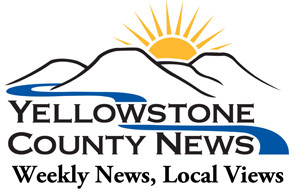Well, Folks, I want to take this week and talk about public meetings and some misconceptions that are out there as well as set the record straight.
I’ve had to address some flat out lies about what can and can’t be done at public meetings as I’ve had to address some board presidents and board members with concerns and issues as well as the general public in regards to three different entities in the last two months. so I think it’s important to address some of those now.
First, please know that any public meeting is open to the public and/or media and can be recorded by anyone. We typically record any meetings we attend, and boards are supposed to record their own meetings as well.
Second, please know that public meetings are for the transparency of the public and taxpayers to know what is being done at these entities and during meetings.
Third, please know that going into closed session in order to eliminate and remove our reporter from being in the room (in order to pull a power trip) is just wrong and illegal (especially when a chairman told me specifically that is why he would go into a closed session). I’m only aware of two reasons why a board would go into closed session which include a personnel issue or to deal with a legal lawsuit. However, any decision or decisions that were discussed during the closed part of the board meeting, then has to be publicly voted on.
For example, if a board discusses a personnel issue and decides to let that said person go or fire them, then the chairman would come out of closed session and the public would then be invited back into the meeting. The board president would then ask for a motion which can then be made and seconded. Then it could be to fire a person, expel a student or to drop a lawsuit, etc., but it has to be made in public and done in public.
If someone is using a closed session in order to remove a member of the media, then it’s illegal, and it’s just the opposite intention of using a closed session. In fact, it’s frankly weaponizing the closed session option for what it’s really supposed to be used for. So, please don’t abuse the real reason for closed sessions, or we will write about it so that it’s corrected. (Even if it takes us three years to cover the proceedings of the board and their decisions.) That’s the whole point of the media to be able to hold public boards and individuals accountable in a good way.
Fourth, please know that anything that is said in public meetings can also be published in the newspaper or media. In other words, if you don’t want to be quoted in the newspaper or media about saying something about a certain topic, then don’t say anything or choose to talk to someone after the meeting or say it in a way that is not so offending.
Fifth, there are a lot of reasons for the media reporting on meetings. I won’t go into all of them but here are a couple. Our readers can’t make all the meetings but want to know what is happening as well as where their tax dollars are being spent, etc. Also, it’s a way for open transparency knowing that decisions and business processes are being done correctly.
Now, I know we are not perfect and we’re trying to make sure we do a good job in focusing on the important topics and discussions at hand. Are we also learning from them? Yes! Is it also 20/20 in hindsight? Yes! And we try our best to do the best job we can in communicating the tough topics at hand, so thank you for being understanding and knowing that there can also be more than one perspective on a single topic. That’s why you have the letters to the editor section. So send your opinion to letters@yellowstonecountynews.com or call and talk to me.
As we’ve had a few community members consistently attacking us for always writing about public entities (especially the Heights Water & Sewer District) and meetings in the last two or three years is no surprise to me. The reason we continue to write and report on those meetings is because they continue to try to hide things, illegally make decisions and try to circumvent the law and the tax payers, and readers need to know about the actions and decisions that are being made by these elected members.
Now, I do have to give kudos to a couple entities that do a good job in building the relationship with our staff so when questions or concerns come up, they’ve responded in a timely manner so that we can get the correct information and be able to communicate in a positive way.
For example, the Worden Ballantine Water and Sewer District (WBYC) had some big issues with their water (about two or three years ago) and, at first, it seemed they did not want to talk to us about the water issues, but they made an early decision to work with us and be available for any questions to the point that it turned out our stories were more informative and helpful than to run from the issues. Gary Fredricks and Sandy Kust need to be given credit for that.
Huntley Project School Superintendent Mark Wandle has also been approachable for a respectable conversation when we reach out to them about decisions and or issues at hand. I understand that many of the conversations are hard to address, but addressing the issues with our staff and reporters gets a better result when we are able to build those relationships of confidence and trust and interact with those involved. My mother always told me that it’s easier to catch flies with honey than it is with vinegar, and I believe that to be true when dealing with the media as well, so please be willing to work with us rather than against us. I’ve found the stories turn out to be more informative than disheartening for everyone involved. Unfortunately, being in the media has its challenging points, but at the same time, has a lot of rewarding and positive opportunities. That’s actually how I’d like it to be, but unfortunately, there are those who think differently, and I can respect that.
We also understand that we are part of this community, as well as want to provide the best we can and sometimes fall short,
However, we appreciate those board members and those attending meetings to understand more the purpose of why the media is there.
Until then,
See you in the paper,
JDM

